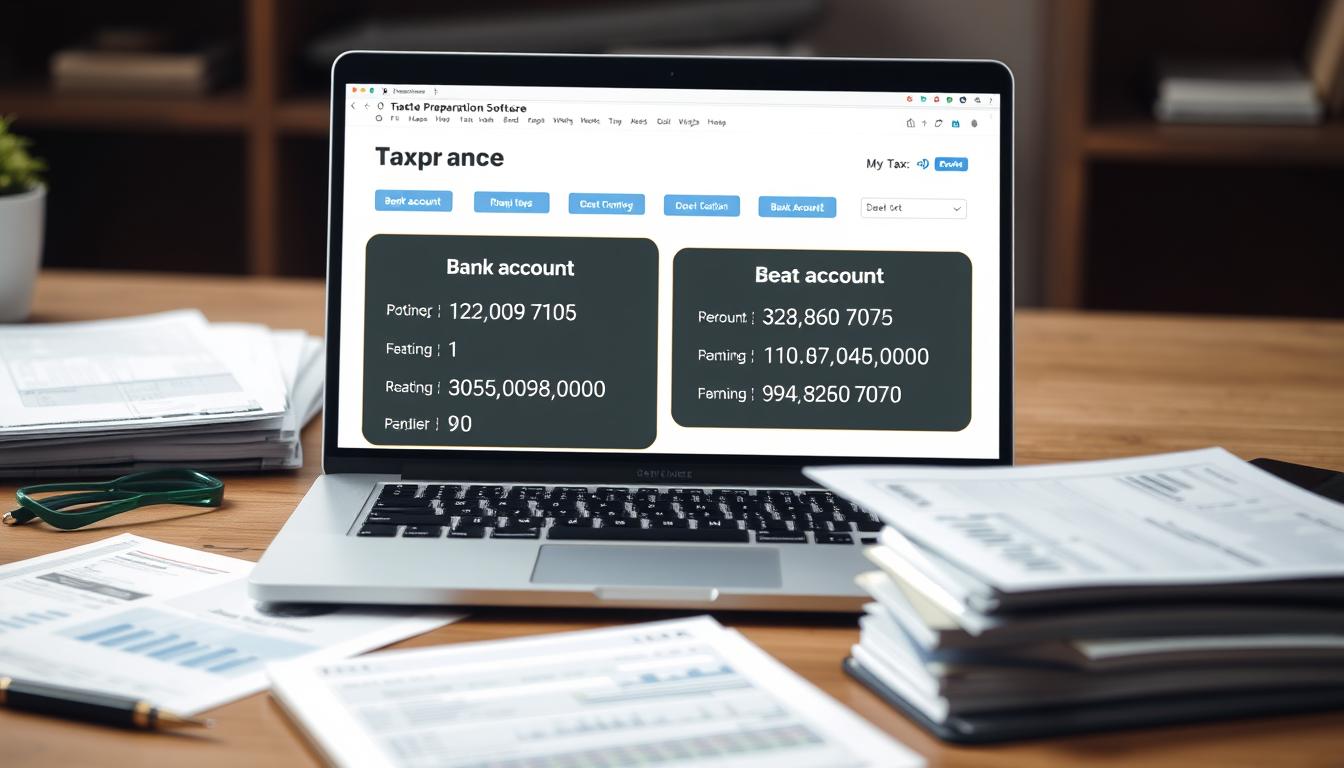You need Form 1095-C if your employer provided you with health insurance. This form verifies your coverage and helps determine eligibility for premium tax credits under the Affordable Care Act. Although you won't submit it with your tax return, you should keep it on hand when filing. It provides important details about the coverage you received, which may affect your tax situation. If you don't have this form, you might miss out on potential credits or face penalties. There's more information about how it all works that could be helpful for your situation.
Key Takeaways
- Form 1095-C is not required to file your taxes, but it provides important health coverage information.
- Retain Form 1095-C for your records, as it verifies employer-sponsored health coverage compliance with the ACA.
- Use Form 1095-C to determine eligibility for premium tax credits if you lack affordable employer-sponsored health plans.
- The IRS does not require Form 1095-C submission with your tax return, but it aids in accurate reporting.
- Ensure to keep Form 1095-C for at least three years for potential audits or tax-related inquiries.
Purpose of Form 1095-C

Form 1095-C serves a crucial role in reporting health insurance coverage offered to employees. This form provides essential information about the health coverage you received from your employer, including your eligibility, the type of plan offered, and the months you were eligible for coverage. It includes your name, Social Security number, and other relevant details, ensuring accurate records for both you and your employer.
The form also specifies the cost of the cheapest monthly premium under your employer's plan, which can be critical when determining eligibility for premium tax credits. If your employer offered minimum essential coverage, this will be indicated, along with details about any family members covered under the plan. Since the Affordable Care Act mandates this reporting, Form 1095-C helps ensure compliance and identifies whether employers face penalties for inadequate coverage.
You'll receive this form by January 31st each year, and it's vital to keep it with your tax records, although you won't need to submit it with your tax return. It simplifies tax preparation, especially if you're eligible for advance payments of the Premium Tax Credit. Additionally, the form is crucial for verifying your health insurance info in compliance with IRS requirements.
Who Must File Form 1095-C

Employers must understand their responsibilities regarding Form 1095-C, especially if they qualify as Applicable Large Employers (ALEs). If you employ 50 or more full-time equivalent employees, you fall into this category. This includes both self-insured and fully insured employers.
Full-time employees are those working 30 or more hours per week, while part-time employees can be combined to meet the full-time equivalent requirement. As an ALE, you're required to file Form 1095-C for all eligible employees. If you offer self-insured plans, you must complete all parts of the form, detailing coverage for each month and providing information about enrolled employees in Part III. Additionally, accurate reporting is crucial to avoid penalties associated with non-compliance. For fully insured employers, you'll need to complete Parts I and II, reporting the offer of coverage, its affordability, and the cost of the cheapest monthly premium.
Information Required on Form 1095-C

When it comes to completing Form 1095-C, you'll need to gather a variety of essential information. Start by collecting details about yourself as the employee, including your name, Social Security Number, and address.
You'll also need your employer's information, such as their name, address, and Employer Identification Number (EIN).
Next, focus on the health care plans your employer offered. This includes specifics about the plans and the months you were eligible to participate. You should also note the type of plan offered, using the appropriate codes, and confirm if the coverage was affordable. If coverage wasn't offered, be ready to explain why.
Additionally, consider your age, as it might be relevant for eligibility. Identify the months you were eligible for coverage and ensure you have the correct codes to reflect the type of offer made. It is important to remember that all full-time employees receive Form 1095-C, regardless of health plan participation.
If you're covered under a self-insured plan, gather information about any dependents covered, detailing who was enrolled each month. Remember, if no one was enrolled or if the coverage was through a fully-insured plan, that section will be blank.
Distribution and Filing Deadlines

Understanding the distribution and filing deadlines for Form 1095-C is vital to ensure compliance and avoid penalties. For the 2024 tax year, you'll need to distribute recipient copies by March 3, 2025. However, keep in mind that some states, like California and Massachusetts, require these copies by January 31, 2025. If the deadline falls on a weekend or holiday, it shifts to the next business day. When it comes to electronic filing, the deadline is March 31, 2025, for both Forms 1095-B and 1095-C. If you're an employer with 250 or more forms, you must file electronically. Meanwhile, your paper filing deadline is February 28, 2025, with smaller employers having the option to file either way. If you need more time, you can file Form 8809 for an automatic extension, but this must be done by the original due date. Don't forget that each covered individual's TIN is required for health coverage reporting, and you need to file Form 1094-C along with Form 1095-C for a complete submission. Additionally, ACA compliance is crucial to avoid late filing penalties, which can range from $50 to $530 per form.
Use of Form 1095-C in Taxes

How does Form 1095-C impact your tax filing process? This form is crucial for reporting your health insurance coverage to the IRS. It helps determine if your employer met its obligations under the Affordable Care Act (ACA) and whether you qualify for the premium tax credit. Applicable Large Employers must provide this form to eligible employees, ensuring that you receive the necessary information regarding your health coverage.
You'll find essential details about the health care plans offered, including coverage months and costs.
While you don't need to submit Form 1095-C with your tax return, it's important to keep it with your tax records. You can use it to verify your health insurance coverage, especially if you received advance premium tax credits.
If you'd health insurance through your employer, the form will show whether the coverage was affordable and what type of plan was offered.
Electronic Filing Requirements

Filing your taxes electronically has become increasingly important, especially with the updated requirements for submitting forms like the 1095-C. Starting in 2024, organizations that file 10 or more returns must file electronically, a significant drop from the previous threshold of 250. This new rule impacts various returns, including W-2s, 1099s, and forms related to health coverage, like the 1095-C.
If you're an employer, remember to send the 1095-C forms to your employees by the end of January. When submitting to the IRS, paper forms are due by the end of February, while electronic filings are due by the end of March. You'll also need to include Form 1094-C with your 1095-Cs. All types of returns must be aggregated to determine the 10-return threshold, including returns from controlled or affiliated service group entities.
While electronic filing is generally more efficient, the IRS may grant waivers for those facing undue hardship or if their systems can't support electronic submissions for specific forms. If you believe you qualify, be sure to follow the IRS's guidelines for requesting a waiver.
Embracing electronic filing not only streamlines the process but also helps ensure accuracy in your tax submissions.
Impact on Premium Tax Credits

Form 1095-C plays a crucial role in determining your eligibility for premium tax credits (PTC) by providing essential details about your employer-sponsored health coverage. This form is issued by employers with 50 or more full-time employees and helps verify whether they meet the Affordable Care Act (ACA) requirements.
To qualify for PTC, you mustn't have access to affordable employer-sponsored plans. Form 1095-C indicates whether your employer's health insurance plan meets the ACA's affordability standards. If it doesn't, you may be eligible for premium tax credits, provided your household income and other criteria align. It's important to understand that Form 1095-A is necessary for completing Form 8962, which reconciles your premium tax credits.
While Form 1095-C is important for assessing your eligibility, remember that it doesn't need to be filed with your personal tax return. Instead, you'll use Form 1095-A when reconciling your premium tax credits on Form 8962.
This process compares any advance payments you received with the actual credit you qualify for based on your final income.
Keeping Records for Future Reference

While you may think of tax documents as just paperwork, retaining Form 1095-C and other related records is essential for your financial well-being. You need to keep these forms for at least three years from the filing date or the due date of your tax return, whichever is later.
If you lose the originals, electronic copies can help you reconstruct data. Not keeping records can result in penalties, fines, and legal issues, so staying compliant is key. In case of an IRS audit, these documents back up your claims and lessen the chance of audits. For cases involving fraudulent returns or unreported income, you might need to hold onto records even longer. Furthermore, organized records facilitate access to important information for loans, insurance claims, and legal disputes.
Plus, they can aid in legal disputes or support financial claims. Organizing your records not only makes accessing information easier but also ensures you're ready for loans, mortgages, or government assistance applications. Maintaining accurate records allows you to track your expenses and income over time. Digital storage is a safe and efficient method, reducing the risk of missing important deadlines.
Frequently Asked Questions
What if I Didn't Receive My 1095-C Form?
If you didn't receive your 1095-C form, don't panic.
First, check with your HR Service Center if it hasn't arrived by mid-March. Remember, forms are usually mailed by March 1.
If you still haven't gotten it, allow 10 business days before requesting a reprint.
You can still file your taxes using your knowledge of your health coverage, as the form isn't required to submit your return.
Can I File Taxes Without a 1095-C?
Yes, you can file your taxes without a 1095-C form.
While it's helpful for verifying your health insurance coverage and determining eligibility for certain credits, you won't face penalties if it's missing.
Just make sure you have other proof of coverage if needed.
Keep your 1095-C with your tax records for future reference, but don't let its absence delay your filing process.
You can still complete your return without it.
How Does a 1095-C Affect My State Taxes?
A 1095-C can impact your state taxes depending on where you live.
While it's mainly for federal tax reporting, some states require you to report health coverage too. You should check your state's regulations, as they may need specific forms or additional information regarding your health insurance.
Keeping your 1095-C handy is smart, as it provides details about your coverage that might be necessary for state tax compliance.
What if My Employer Provided Incorrect Information on the 1095-C?
If your employer provided incorrect information on the 1095-C, you should contact them to request a correction.
It's their responsibility to ensure the information is accurate. Check for errors regarding your address, coverage offer, and household members.
Don't worry if they refuse to correct it; it won't impact your tax return.
Just keep the form with your records, as it helps the IRS track health insurance coverage.
Are There Penalties for Not Filing a 1095-C?
Yes, there are penalties for not filing a 1095-C.
If your employer fails to file or furnish this form, they could face significant fines—up to $330 per form, with a maximum of nearly $4 million annually.
If they intentionally disregard the rules, penalties may increase.
Employers should file Forms 1094-C and 1095-C by the deadlines to avoid these costly consequences and ensure compliance with ACA regulations.
Conclusion
In summary, you don't necessarily need Form 1095-C to file your taxes, but it's important for understanding your health coverage and potential penalties. If you received it, keep it handy, as it can help you accurately report your health insurance status. Make sure to stay aware of deadlines and keep records for your future reference. By doing so, you'll ensure a smoother tax filing experience and stay compliant with health coverage requirements.









